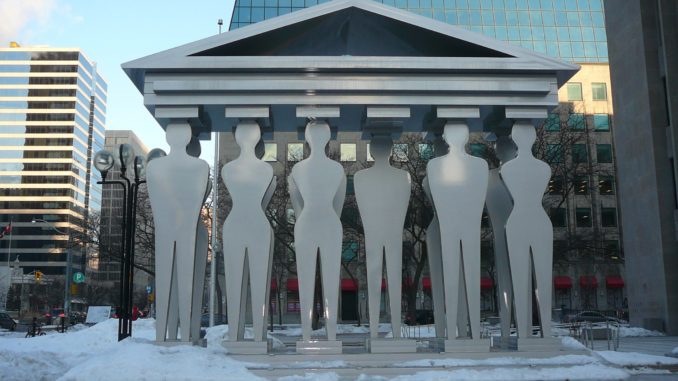
On March 15, Ontario courts announced the suspension of all operations.
By: Shahroze Rauf
The COVID-19 outbreak has grown exponentially, making it’s danger to the public clear, and effectively shutting down several public services in Canada – one of those being trials and courts. But adjustments and contingency plans are in place as the pandemic spreads, according to law clerk Sylvie White.
“Even now, they do a lot of audio and video hearings as much as they can. Some of these cases may be resolved outside of court as well,” says White. “The court doesn’t always need to be involved in these cases, it’s only if the parties can’t resolve a case together.”
White says that some of the weight could be lifted off the court by disputing parties who settle, realizing they may not want to wait the long periods of time that could be caused by the increase in backlog as the courts shut down during the outbreak.
But some individuals may not be able to afford even considering a settlement. Take for example Amy – her identity has been protected to avoid any backlash she may receive socially or legally by discussing her ongoing grievance against her previous employer.
“The first three months after I got fired, I was not working, I was unemployed. I wasn’t looking for work because I was so hurt and distraught,” says Amy. “The way I was treated, there was a lot of racism involved and it was a very emotional journey – I wasn’t the only one involved in this issue. To know I was the only one to lose my job from this was just hurtful.”
Amy’s situation was emotionally and financial taxing. Three weeks after her marriage, she had lost her job of two years on hearsay and could not bring herself to look for a job as she entered a deep depression. Now, her worries are that her case may worsen due to the indefinite delay in her hearings.
But, White disagrees, saying that the court will still uphold the law in her situation and that the delay shouldn’t affect her case in any way.
“Her matter will have to be rescheduled, sure, it’s important for her, but she will have to wait,” says White. “If won’t change the outcome, the officers of the court will review it. The law never changes.”
And that may just be the problem – despite efforts to modernize court processes, the transition to video and audio communication has not been without issues.
“Because of years of inaction and institutional reluctance to [modernize], the justice system is playing catch-up right now,” said criminal defense lawyer in Ottawa Michael Spratt, in an interview with CBC News.
Dealing with the transition to using technology and the increasingly large backlog may prove to be the Canadian Justice system’s hardest feat yet.
“It’s going to be difficult to find space for hearings that are hoping to be rescheduled in slots six months from now, most of which are already filled up,” says White. “So, it’s going be very chaotic.”

Be the first to comment